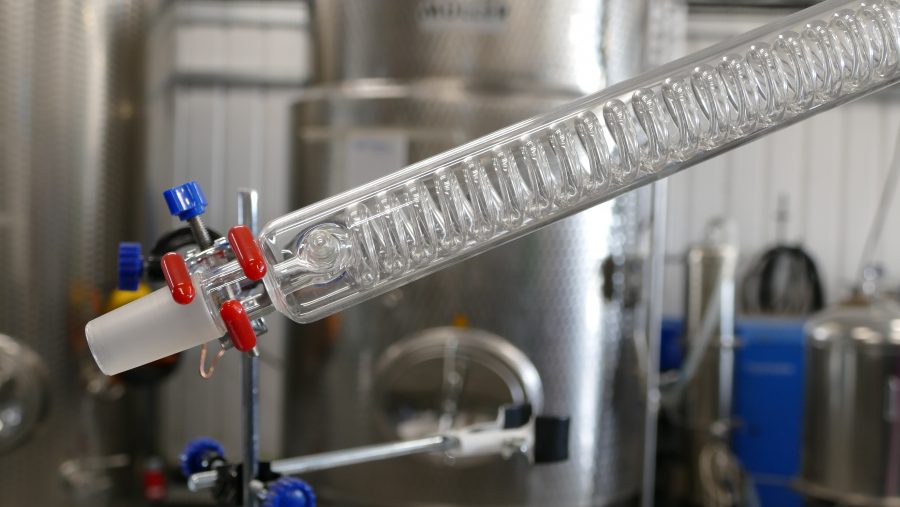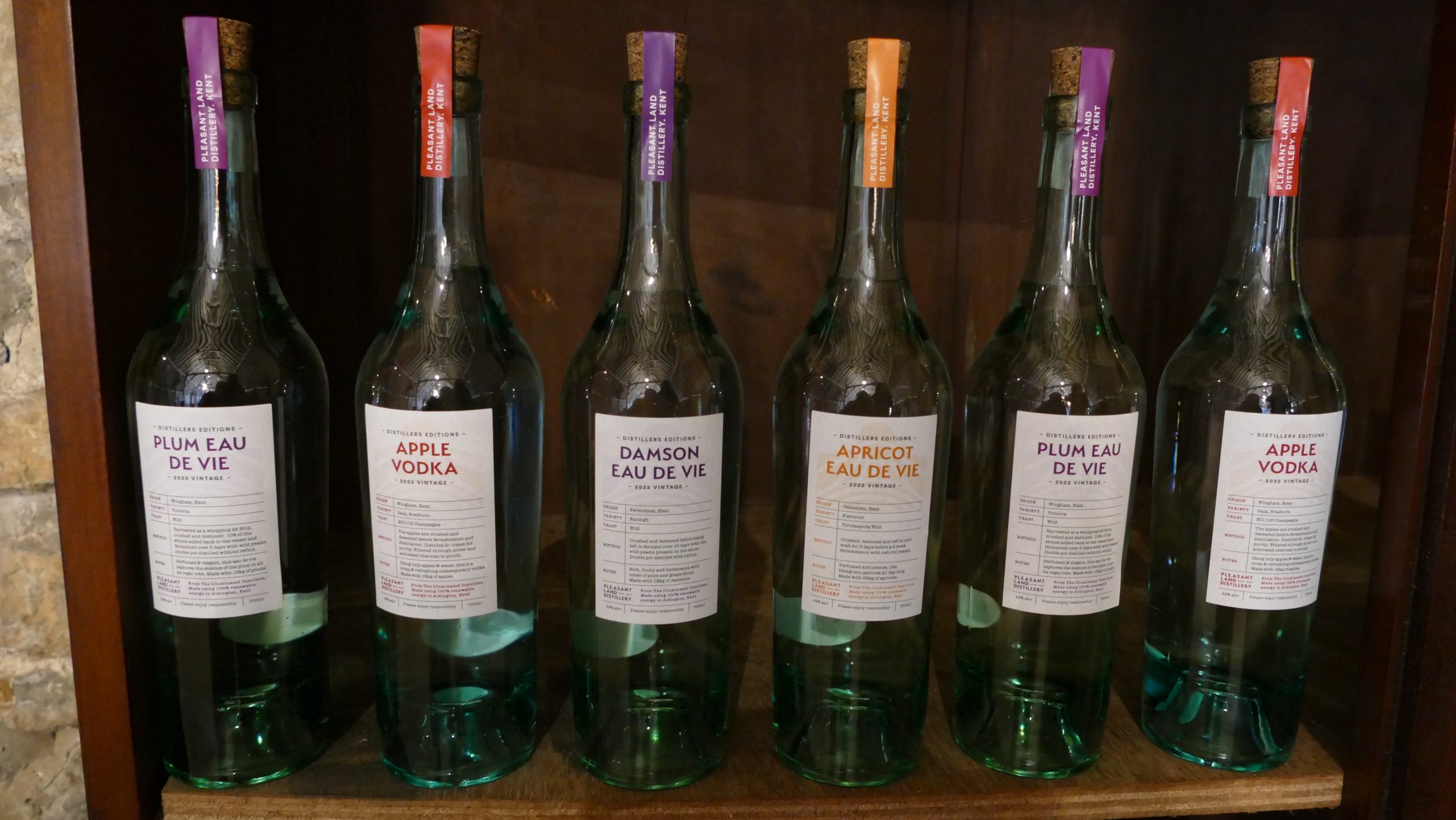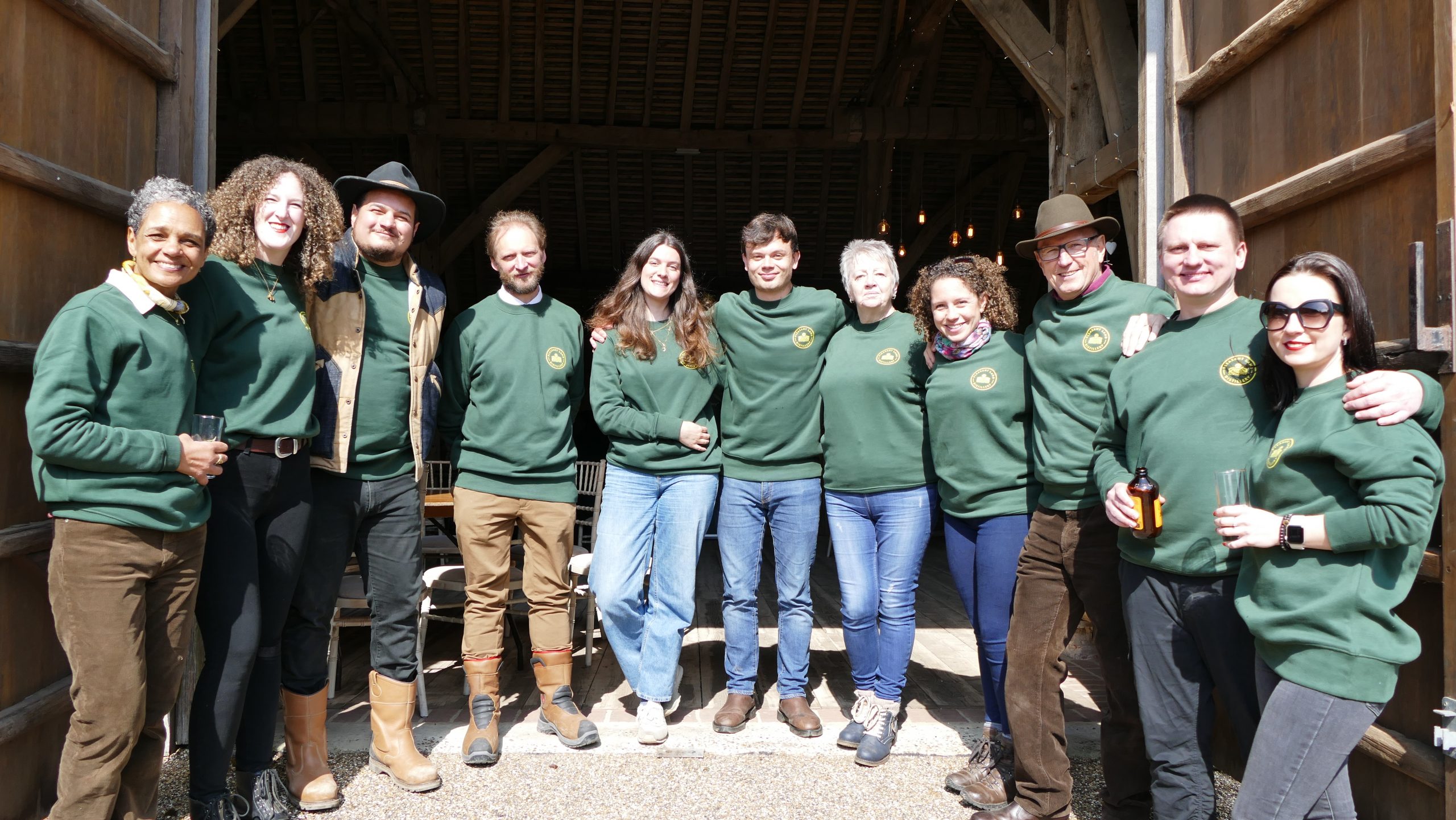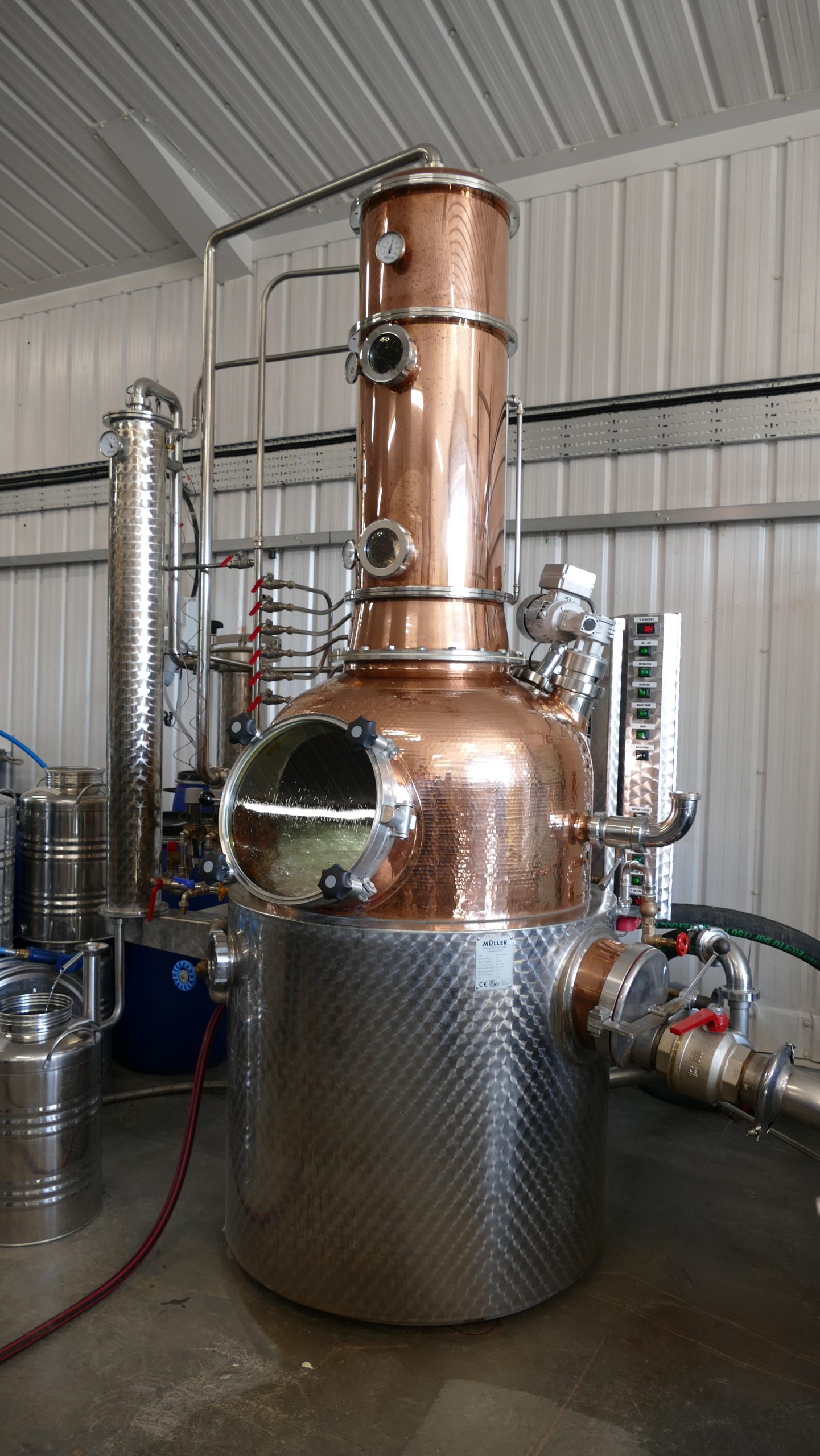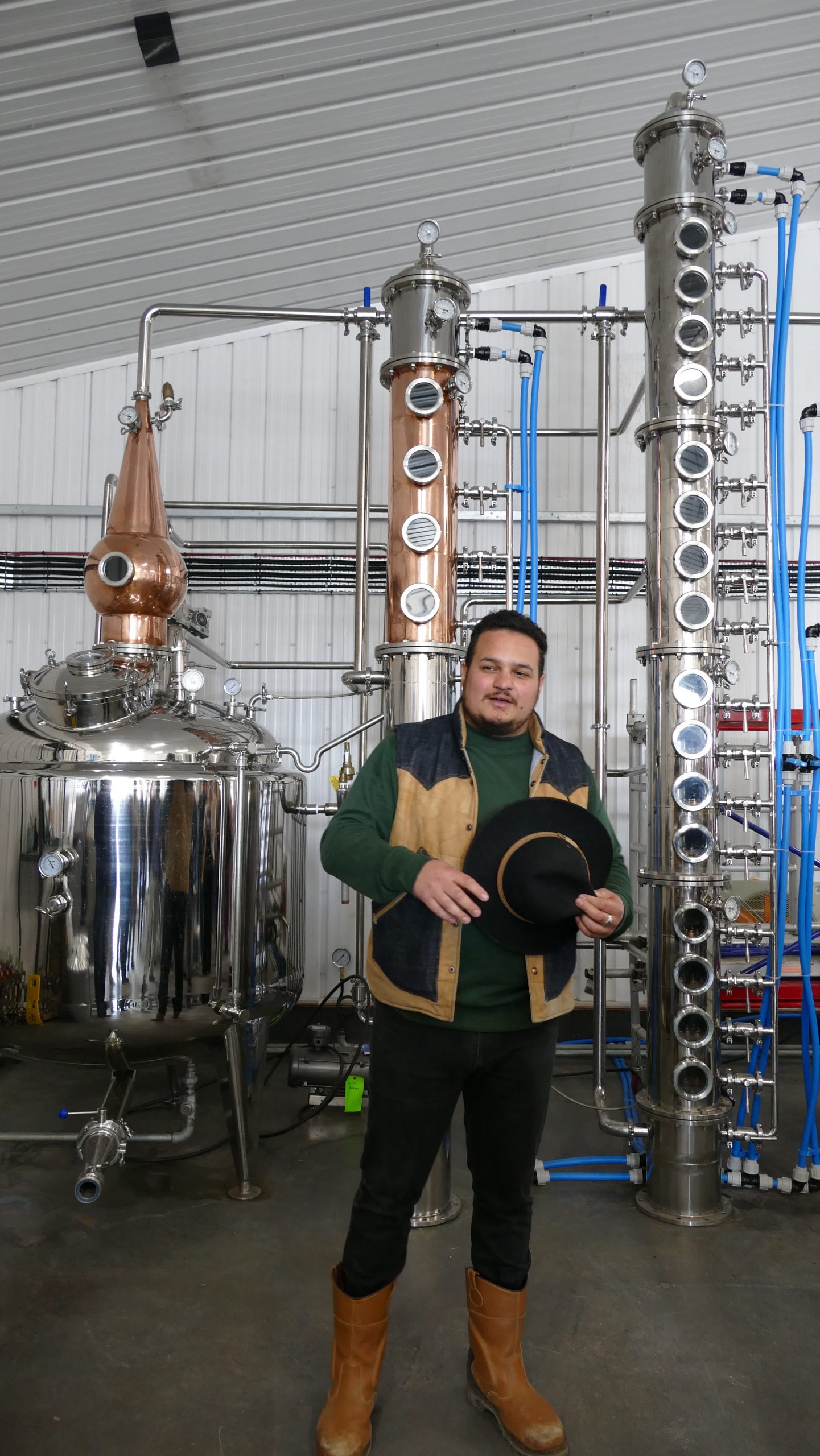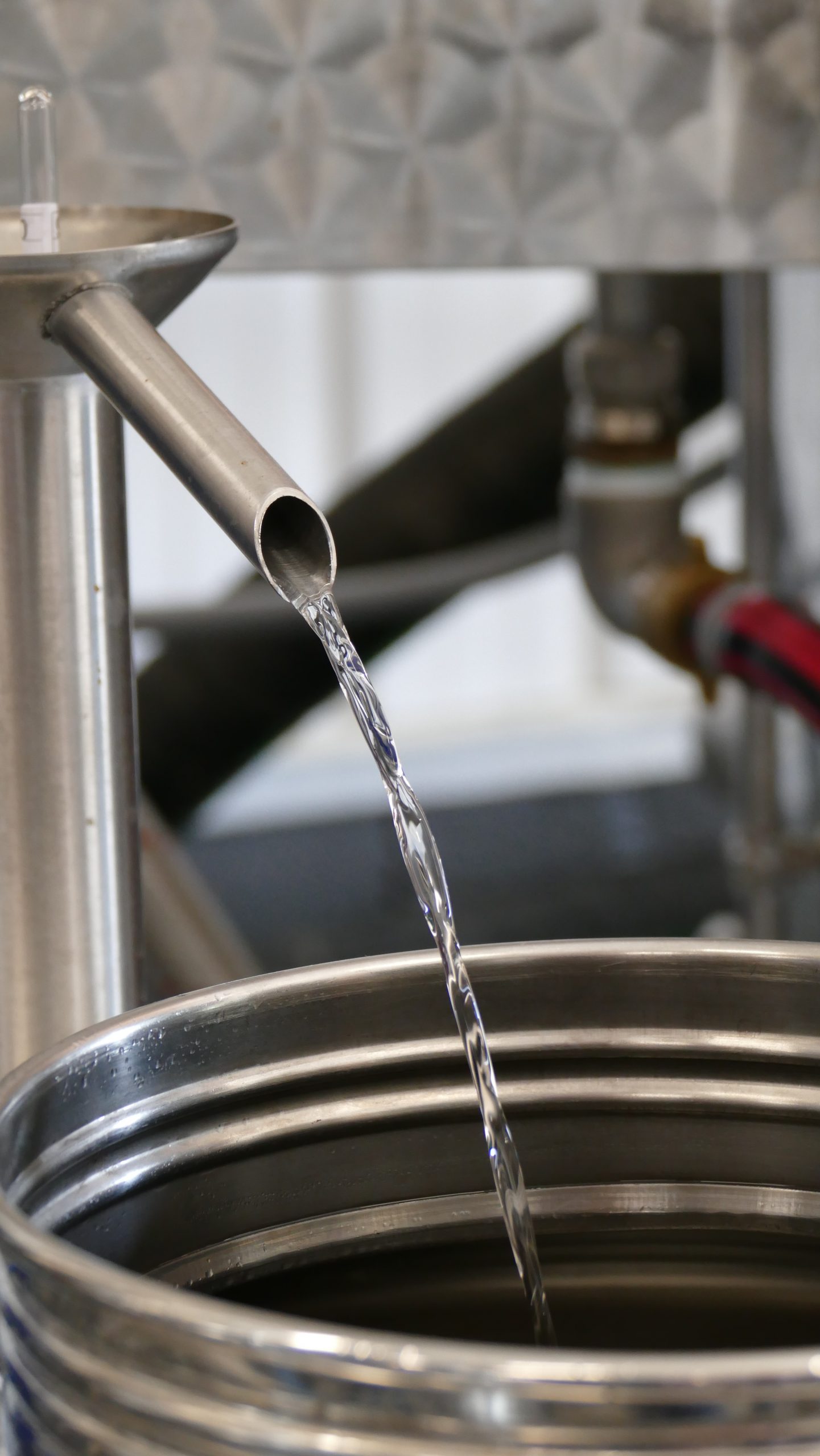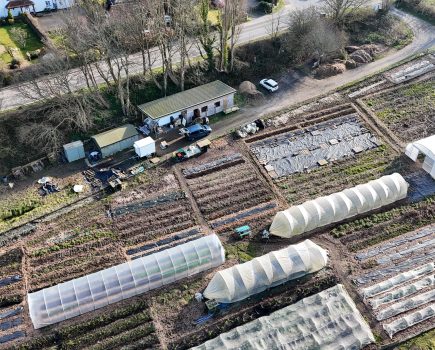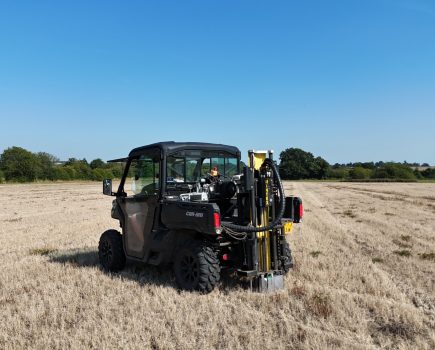Courtesy of our sister publication Vineyard Magazine we joined Pleasant Land Distillery to celebrate one year of trading for this young but thriving business. This family run sustainable distillery is headed up by founder and CEO Sebastian Barnick.
Sebastian started his career as an officer in the Royal Navy and was medically discharged after six years. Those years have given him a passion for life and a spirit of adventure (he even tells a tale about pirates). Both of these qualities he would need in abundance when many years later he decided to launch Pleasant Land Distillery, based in Ashford, Kent.
After life in the Navy Sebastian applied for an apprenticeship with Liberty Wines. He gained the WSETDip and winemaking experience all over the world. Working at wineries in both Austria and South Africa gave Sebastian an incredible depth of insight into the wine industry and the vastly different wines that can be made but it was a chance encounter in South Africa that eventually led him to setting up Pleasant Land Distillery on a farm in the Kent countryside.
He met winery apprentice Johann Monig, who was also head distiller at Wilderer. After a day in the winery Sebastian and Johann would take the waste grape skins and would distil at night creating a whole new product in the evening. Although Sebastian remained in the wine trade, for a while a fire had been lit and the creativity of distilling was in his blood. After achieving his distilling qualifications, he decided to embrace a new challenge. Sebastian said: “Like most successful businesses, we started with a healthy injection of cash and confidence.” In the case of Pleasant Land Distillery, both of these came from Sebastian’s father Charles. It is quite heart warming to note how each member of this hardworking family gives credit to each other and how through team work they have managed to accomplish so much. The business originally started with Sebastian working long and lonely hours but has now grown to six members of staff.
On 16 April 2022 the first liquid began to flow at Pleasant Land Distillery. Sebastian was heavily influenced by those days in South Africa that made use of a waste product and that really shows because there is so little waste at this sustainable distillery. Solar energy provides the electricity and the stills are run using a biomass boiler, the heat produced in the distilling process is then captured and also put to use. “It is a closed loop system,” explained Sebastian. Waste management takes several interesting forms, such as black soldier fly larvae, which literally eat most forms of organic matter, vermicomposting, using worms to break down waste quickly and bokashi fermentation, a closed anaerobic system that creates liquid fertiliser from organic matter.
It has been an amazing first year for the young business, something that Sebastian pointed out during his speech at the celebration that marked the exact date of the production of the first liquid on site. At the gathering, which was held in a 15th century Kent Peg barn at Bank Farm, he extended his “thanks and gratitude for support over a critical first year in business.”
Acknowledging that the journey had not always been a smooth one, Sebastian was smiling as he said: “Thanks to the farmers who have sheltered us and grown our products and helped with our tractor skills, working together with trust and compassion”.
Cash flow is vital to any business and while “the plan was to create fruit spirits and whisky, inspired by the terroir of Kent, using 100% renewable energy,” it was vital that the business could sustain itself at the same time as promoting planet sustaining practices. “The best way for a distiller to do that is by distilling. Making the most of my network, expertise, outstanding equipment and small amount of distilling notoriety, we started making spirits for other people. This has gone from strength to strength and we have become a stationary Bouilleur du Cru with a growing reputation for distilling excellent brandies and marc from grapes, skins and ciders,” said Sebastian.
Speaking of the English and Welsh wine industry, Henry Sugden from Defined Wine said: “Our waste can create a new product, many vineyards can benefit by adding diversity to their product range and also boost their sustainable credentials simultaneously.” Henry also pointed to other uses for winery waste and the possibilities for red grape skins to be used in the pharmaceutical industry for the production of resveratrol.
With his international experience as a winemaker, Sebastian is uniquely placed to give vineyards the benefit of his creativity, offering a bespoke service from conception, recipe creation, production, bottling, and labelling right through to delivery. In effect he is literally in a position to bottle your ideas.
Sebastian explained some of the services he can offer to wineries:
- Distillation of grape skins
- Fermentation and distillation of Piquet
- New product development and production of gins/vodkas/vermouths/brandies and liqueurs
- Cask selection, filling and maturation
- Distillation of year 1/2 grape harvests
- Distillation of low pH/underripe grapes
- Distillation of rebeche and hard pressing
- Distillation of lees
- Creation of ratafias and marcs
- Contract bottling of spirits.
“If it has alcohol, we can make it,” Sebastian said. “This adds a branded wine-adjacent product created from things that would otherwise go to waste. This can be sold through existing sales channels, generating further revenue,” he added.
Of course vineyards produce grapes and the idea of turning a waste product into another delicious creation cannot be underestimated but “there are so many levels to creativity,” said Sebastian. “Between distillations of English Chardonnay, Pinot Noir grape skins, ciders, regeneratively farmed wheat and of course, Jersey Royals, we made time for some small batches of single vintage Eaux de Vie made from exceptional-quality local damsons, Victoria plums, apricots and Conference pears… we are looking forward to the next fruit season in the Garden of England.” This is a reminder that many vineyards often have other fruit trees on their land that could be put to a creative use by Sebastian and his team.

